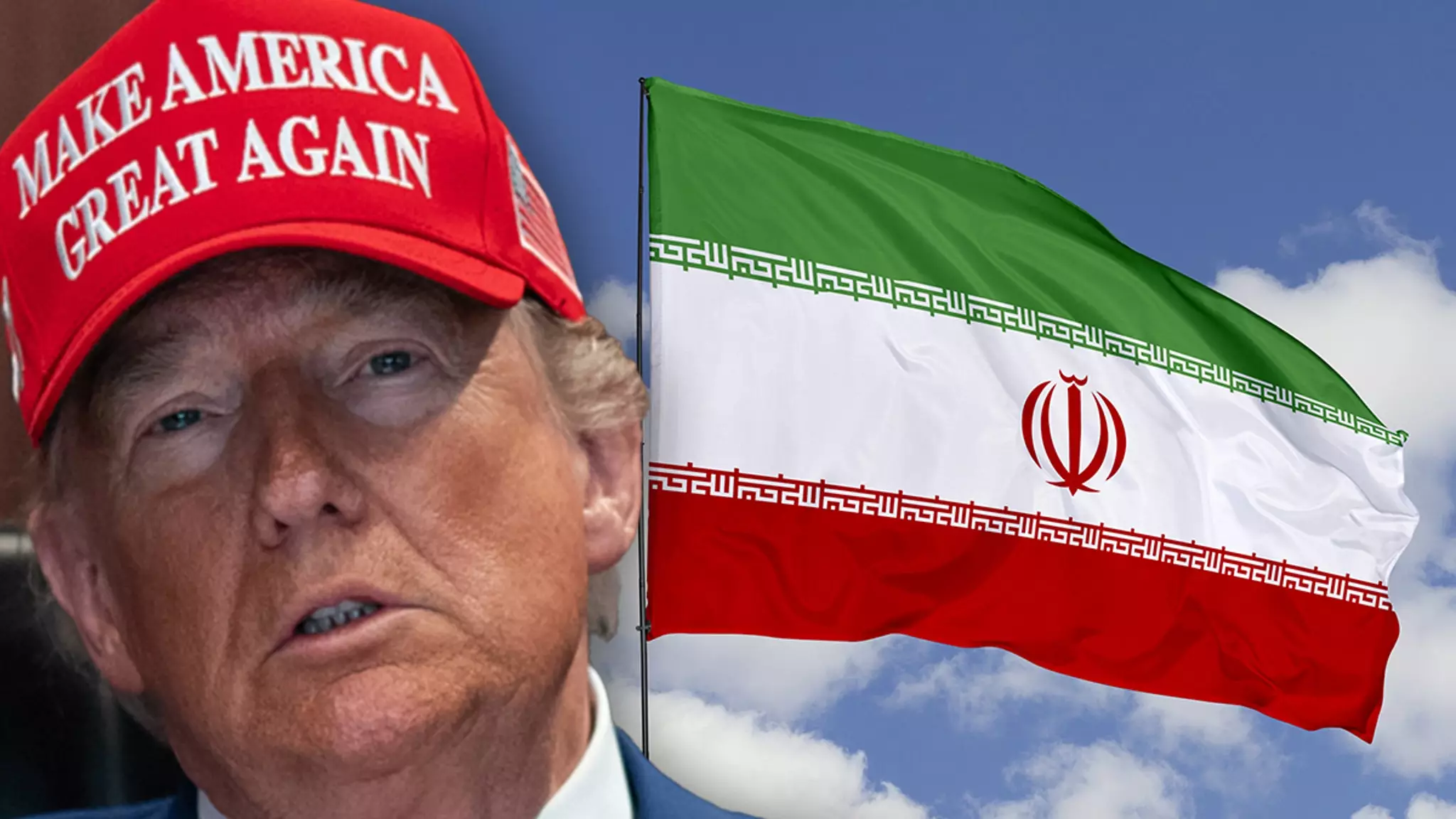In the realm of international politics, few figures have been as polarizing as former President Donald Trump. Recently, he has turned his attention toward Iran, reviving the once-coined slogan “Make America Great Again” with a twist: “Make Iran Great Again.” This development opens a Pandora’s box of implications and raises crucial questions about the U.S. approach to foreign intervention. Most notably, Trump has been vocal about the idea of “regime change” in Iran in the aftermath of a significant military operation involving airstrikes targeting nuclear facilities. His comments shed light not only on his personal ambitions but also on the broader geopolitical landscape that might shape Iranian society and government in the future.
A Familiar Rallying Cry
Trump’s slogan adaptation is steeped in irony, given the very roots of his call to action. The phrase resurrects notions of American exceptionalism and interventionist policies, hinting at a desire to export the spirit of democracy — albeit through military means. While the former president’s followers may rally around the statement, it conceals the multi-layered complexities of regime change, which historically has led to unintended consequences, including power vacuums and long-term instability. In pointing to regime change, Trump seems to advocate for a strategy that prioritizes ideological imposition over the nuanced reality on the ground within Iran, showing a paradigm that ignores local sentiments in favor of an imposed vision.
Contrasting Perspectives
On the other hand, Secretary of Defense Pete Hegseth presents a dissimilar viewpoint. His emphasis on targeting only nuclear facilities, without a clear agenda for altering Iran’s leadership, signifies a more calculated and limited approach to military intervention. This divergence in perspectives may reflect broader tensions within Trump’s administration, possibly indicating discrepancies between aggressive rhetoric and pragmatic military strategy. Here, it becomes crucial to understand whether a call for regime change aligns with the objectives of U.S. military engagements or merely serves as a populist rallying point, devoid of actionable intent.
The Role of Public Perception
While Trump’s declarations resonate with a segment of the American populace harboring sentiments against authoritarian regimes, one must question the efficacy of such rhetoric in influencing actual change. The Iranian population, facing stringent governmental scrutiny, is unlikely to respond positively to a movement like “Make Iran Great Again.” The notion of foreign imposition removes agency from the locals, who are best equipped to navigate their socio-political landscape. Such oversimplifications reduce complex issues to catchy slogans, overlooking the fabric of cultural and societal challenges facing the Iranian people.
Implications for U.S.-Iran Relations
As tensions continue to simmer between the two nations, Trump’s provocative statements add fuel to an already volatile situation. His inclination toward regime change critiques the effectiveness of diplomacy and may alienate potential allies within Iran who seek reform rather than revolution. The consequences of endorsing military solutions are manifold; history shows that these interventions often spiral into conflicts that extend beyond their intended scope. Nor should be neglected the moral implications surrounding foreign intervention that can lead to immense human suffering. Trump’s rhetoric must grapple with the ethical considerations of promoting democracy through the barrel of a gun, raising profound questions about the American role in global affairs.
This unfolding narrative around “regime change” serves as a stark reminder that diplomacy should strive for constructive engagement rather than merely operating from the standpoint of aggressive posturing. The lessons gleaned from past interventions underscore the significance of nuanced understanding and respect for local agency, pushing America toward a more thoughtful international policy framework.

